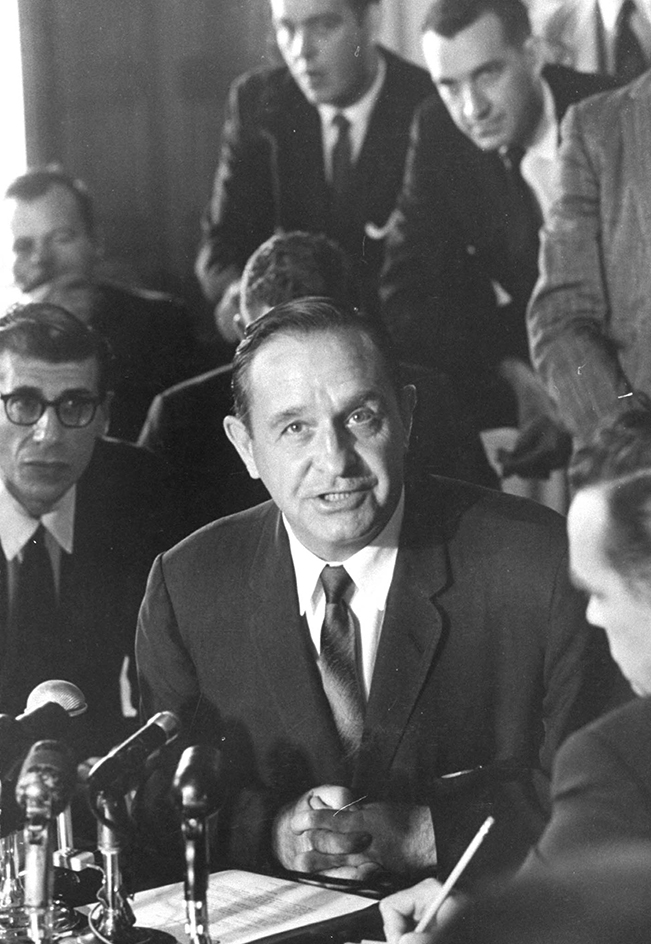Faubus << FAW buhs >>, Orval (1910-1994), was the governor of Arkansas from 1955 to 1967. He gained national attention in 1957 for his efforts to stop black students from attending an all-white school in the city of Little Rock.

Orval Eugene Faubus was born on Jan. 7, 1910, in the northwest Arkansas town of Combs. His father was a poor farmer, and Orval was one of seven children. As a young man, Faubus worked as a schoolteacher. He joined the United States Army during World War II (1939-1945) and achieved the rank of major. He left the Army in 1946. Faubus then served as the postmaster of Huntsville, Arkansas. Soon after, he became the owner, editor, and publisher of a newspaper, the Madison County Record. He later purchased the Arkansas Statesman, a Little Rock newspaper.
From 1949 to 1953, Faubus served in the administration of Governor Sidney McMath, first as a member of the state highway commission and later as director of highways. In 1954, Faubus, a Democrat, won election as governor. He went on to serve six two-year terms in the post. At the time, Faubus was known mainly as a moderate and populist—that is, a supporter of the interests of the community’s people. He worked to improve roads in rural areas, health care, and schools.
In the 1954 decision of Brown v. Board of Education of Topeka, the Supreme Court of the United States ruled that segregation (separation of students by race) in public schools was unconstitutional. The next year, the court ordered that public school desegregation be carried out “with all deliberate speed.” The Little Rock School Board adopted a plan to begin integrating Central High School in the fall of 1957. That September, however, Faubus warned that “blood will run in the streets” if a group of black students tried to enter the school. He ordered the Arkansas National Guard to block their entry. President Dwight D. Eisenhower sent United States Army troops to enforce the court order and escort the children to school. See Little Rock Nine .
The incident at Central High School helped turn national public opinion against Faubus, and also against segregation. But Faubus’s stand made him politically popular in his home state. He continued to serve as governor until 1967. In later years, Faubus failed to win his party’s nomination for governor. He died in Conway, Arkansas, on Dec. 14, 1994.
